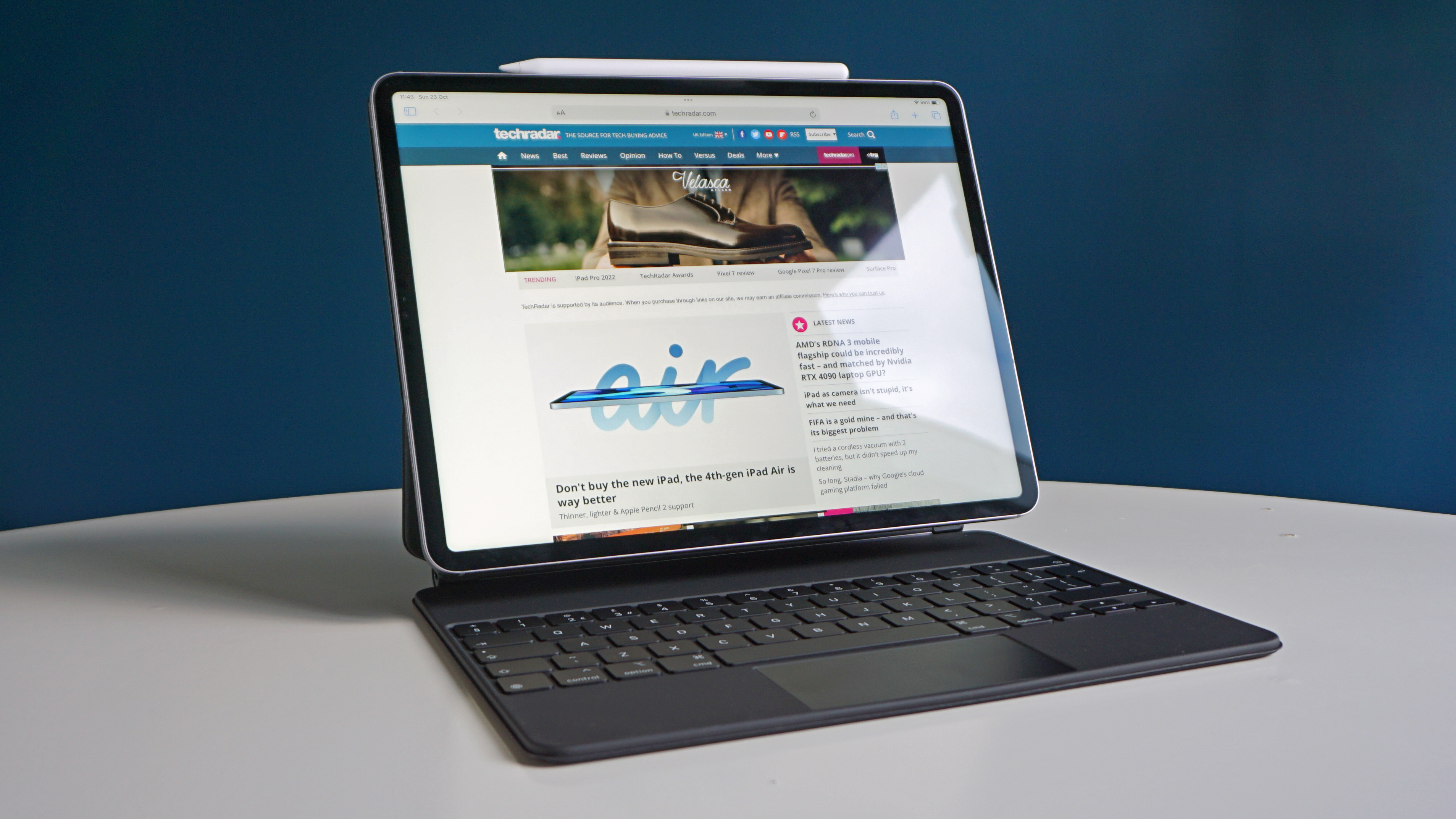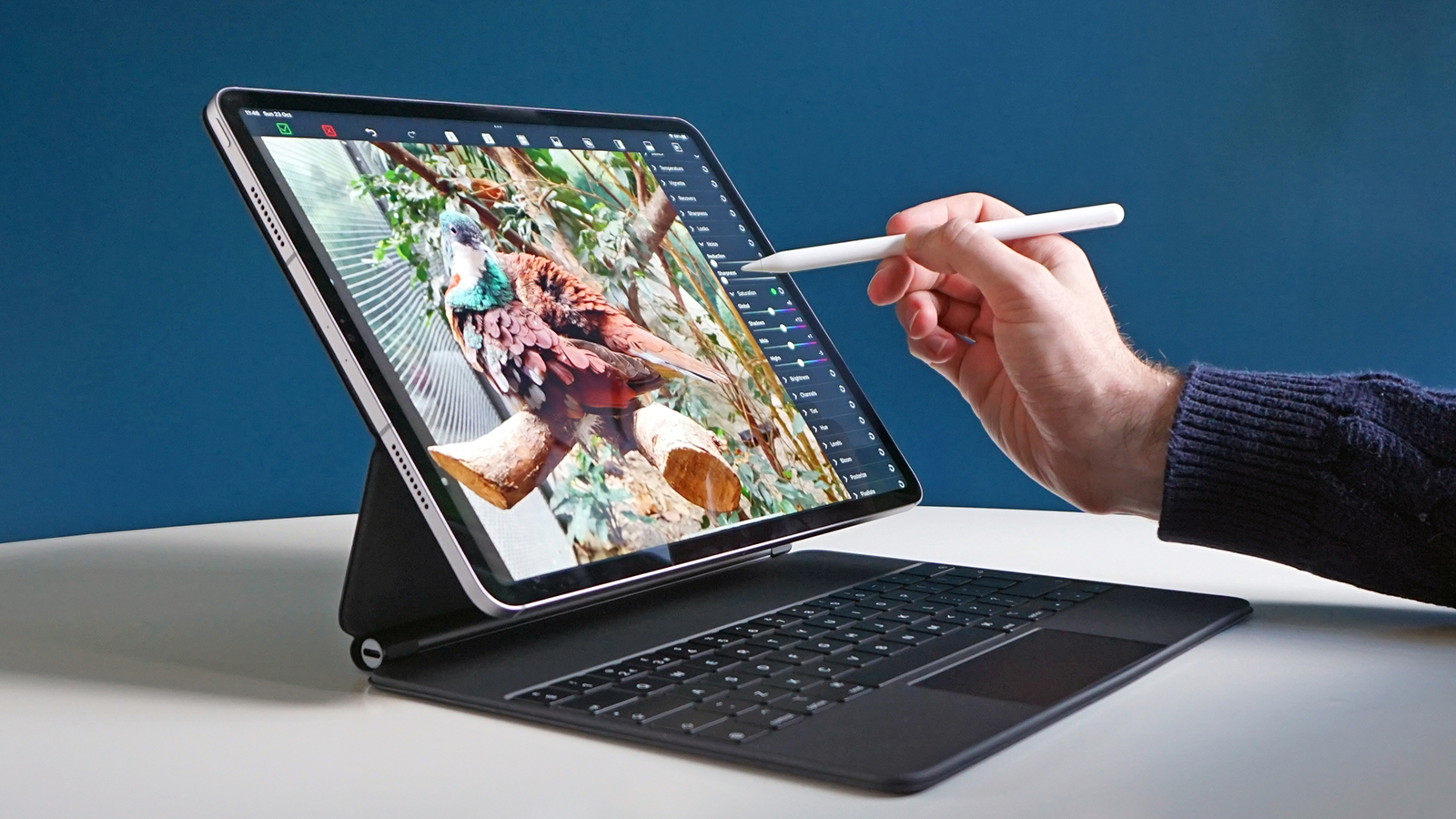
We recently reported that Apple’s next iPad Pros could cost significantly more than their 2022 predecessors – and a new report gives us a better idea of just how ridiculous those price tags might be.
Apple is widely understood to be working on two iPad Pro models, likely to launch in 2024, as successors to the iPad Pro 12.9 (2022) and the iPad Pro 11 (2022). Both tablets are strongly rumored to feature ‘tandem’ OLED displays – which could help them match the best OLED TVs in terms of brightness and increase the life of their respective screens – but these panels reportedly cost twice as much to produce as the mini-LED panels currently used in today’s top-of-the-range iPads.
To nobody’s surprise, Apple looks likely to offload those increased costs onto consumers. According to Korean outlet The Elec (via MacRumors), the 11-inch OLED iPad Pro could start at approximately $1,500 (around £1,260 / AU$2,270), while its larger 13-inch sibling could start at approximately $1,800 (around £1,500 / AU$2,700). Yes, you read that right – both iPads may start at four-figure prices.
It’s worth noting that these prices are merely under consideration at this stage – nothing has been set in stone yet, and Apple is notorious for putting extreme pressure on suppliers to get the prices it wants. But if accurate, those numbers would see the 11-inch iPad Pro cost 80% more than its predecessor (which starts at $799 / £900 / AU$1,399), and the 13-inch model cost 60% more than its 12.9-inch 2022 equivalent (which starts at $1,099 / £1,249 / AU$1,899).
Even Apple’s cheapest 2022 MacBook, the MacBook Pro 13-inch (M2, 2022), retails for less than the 11-inch OLED iPad Pro’s reported $1,500 price tag (check out our best MacBook deals for the latest discounts), while the Apple MacBook Air (M2, 2022) – our pick for the best laptop in 2023 – starts at a similarly paltry $1,199 / £1,249 / AU$1,899. And that’s a problem.

Nobody is expecting Apple products to come cheap – especially not top-tier iPads equipped with two-stack OLED displays. But almost $2,000 for a tablet? Apple might be overestimating the desire of iPad buyers with those sort of price tags.
There’s no doubt that the company’s upcoming iPad Pro tablets will be more-than-suitable alternatives to the best laptops around. As they exist today, Apple’s pro-grade iPads are supremely versatile machines that boast beautiful mini-LED screens and a veritable smorgasbord of tablet-specific apps. Quite simply, they’re almost perfect – and how many people are really bothered enough by the lack of pixel-perfect contrast in the (already amazing) mini-LED screen of the 12-inch iPad Pro to pay 60% more?
Get daily insight, inspiration and deals in your inbox
Sign up for breaking news, reviews, opinion, top tech deals, and more.
Faster internals on the next iPad Pros are a given, but the M2 chip inside Apple’s current models already provides more than enough power to even the most demanding users. What’s more, regular software updates are so forthcoming that older iPads can often keep pace with their newer siblings for years on-end.
The tandem structure of these aforementioned OLED displays will supposedly give them a four-times longer lifespan than OLED panels currently used in tablets and laptops – so there’s that, at least.
Apple’s OLED-equipped iPad Pros will surely be the best iPads we’ve ever seen – but there has to come a point where ludicrous price increases are no longer justified by the innovation they’re supposed to pay for.

Axel is TechRadar's UK-based Phones Editor, reporting on everything from the latest Apple developments to newest AI breakthroughs as part of the site's Mobile Computing vertical. Having previously written for publications including Esquire and FourFourTwo, Axel is well-versed in the applications of technology beyond the desktop, and his coverage extends from general reporting and analysis to in-depth interviews and opinion. Axel studied for a degree in English Literature at the University of Warwick before joining TechRadar in 2020, where he then earned an NCTJ qualification as part of the company’s inaugural digital training scheme.